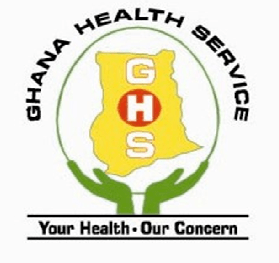Ghana Health Service calls for collaboration to eradicate NTDs
 The Ghana Health Service has called for the strengthening of collaboration with ministries, departments and agencies to explore strategies to eliminate Tropically Neglected Diseases (NTDs) in the country.
The Ghana Health Service has called for the strengthening of collaboration with ministries, departments and agencies to explore strategies to eliminate Tropically Neglected Diseases (NTDs) in the country.
There are 20 NTDs globally and notable among them are schistosomiasis, soil transmitted helminthiasis, buruli ulcer, yaws, leprosy, scabies and Human African trypanosomiasis.
These primarily affect low-income communities, causing blindness, enlargement of the lymph, impaired cognitive development, and other health issues.
At the 2024 town hall advocacy meeting on eliminating Neglected Tropical Diseases in Koforidua, Dr Winfred K. Ofosu, the Eastern Regional Director, Ghana Health Service (GHS), said eliminating those diseases was crucial to preventing the immense social and economic burden they brought on society.
The meeting was on the theme: “Advocacy for equity towards NTDs management: The role of Stakeholders.”
He outlined three primary strategies for curbing NTDs, which include mass drug administration in all endemic districts annually or bi-annually, morbidity management, and health education.
Dr Ofosu said the GHS would continue to strengthen its collaboration with agencies and stakeholders to explore all three strategies adopted earlier to eliminate the diseases.
He noted that Ghana’s geographical conditions, particularly in the Eastern Region, played a significant role in the high prevalence of Neglected Tropical Diseases.
Fast-flowing rivers with rocky beds, thick forests, and water bodies used for vegetable farming and swimming contribute to this high prevalence.
Dr. John Ekow Otoo, the Deputy Director of Public Health, Eastern Region, highlighted key activities carried out in there to combat NTDs.
These include surveillance (monthly and quarterly reporting), support to non-governmental organizations helping to identify skin NTDs, training on contact tracing of historical cases, and confirmation and treatment of leprosy cases.
Based on the available data, the Region reported 12 cases of leprosy in 2022 another 12 in 2023. Out of these, 11 cases were able to successfully complete their treatment.
There was no child case, no death and no disability among new cases; and single dose Rifampicin was given to contacts, he said.
Dr. Otoo said the way forward for was to conduct data validation after Mass Drug Administration to ensure accurate recording of NTDs in the District Health Information Management System.
Mr Joseph Opare, the Programme Manager, NTDs Programme of GHS said challenges in fighting the diseases include inadequate funding for programme activities, insecurity during field activities, and competing priorities with other community-based initiatives.
He urged the public to seek medical attention immediately when experiencing any unusual symptoms.
Rev. Dr. Joyce Aryee, NTD Ambassador, said the current generation had a mandate to eliminate NTDs by 2030.
“With our concerted and interactive engagements at this advocacy event, we will identify practical, locally-led solutions towards NTD elimination goals,” she said.
“Making efforts against these diseases will contribute to universal health coverage and the Sustainable Development Goals for the Eastern Region, Ghana and the world at large.”
Source: GNA
